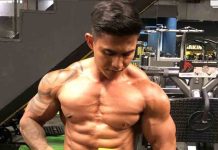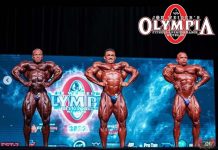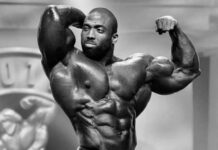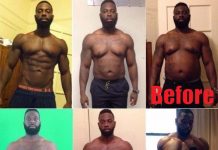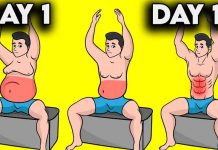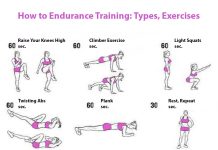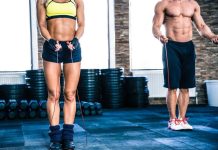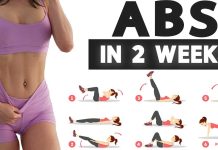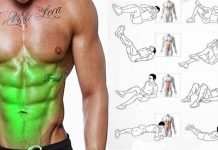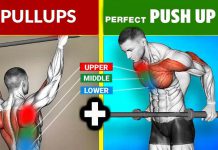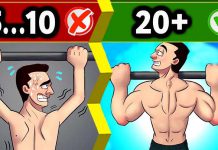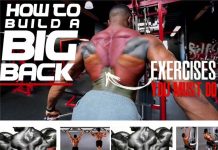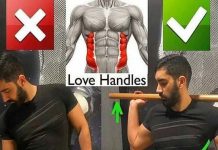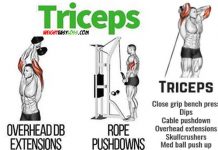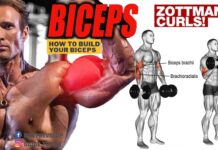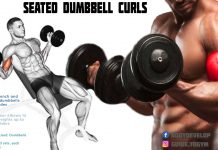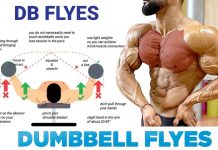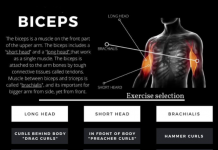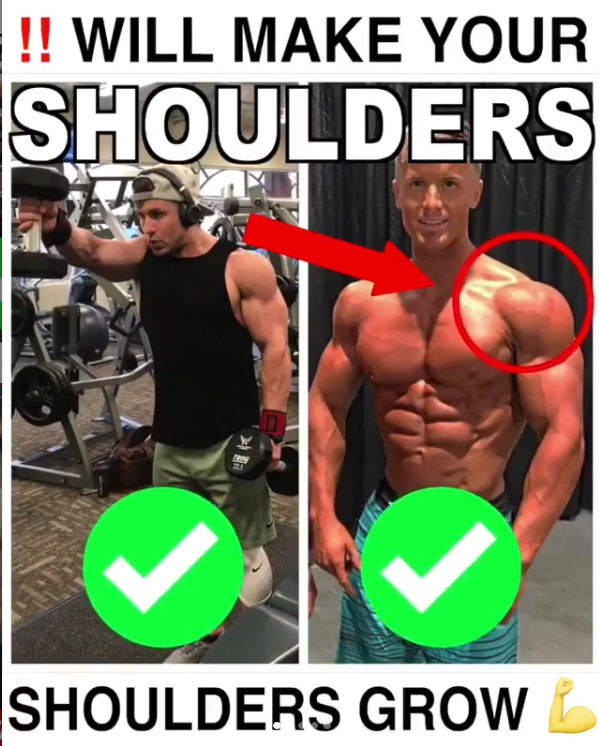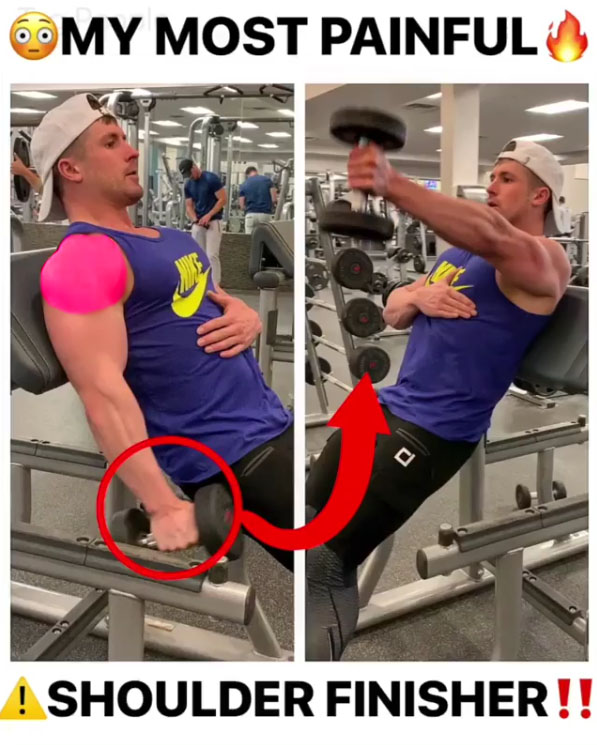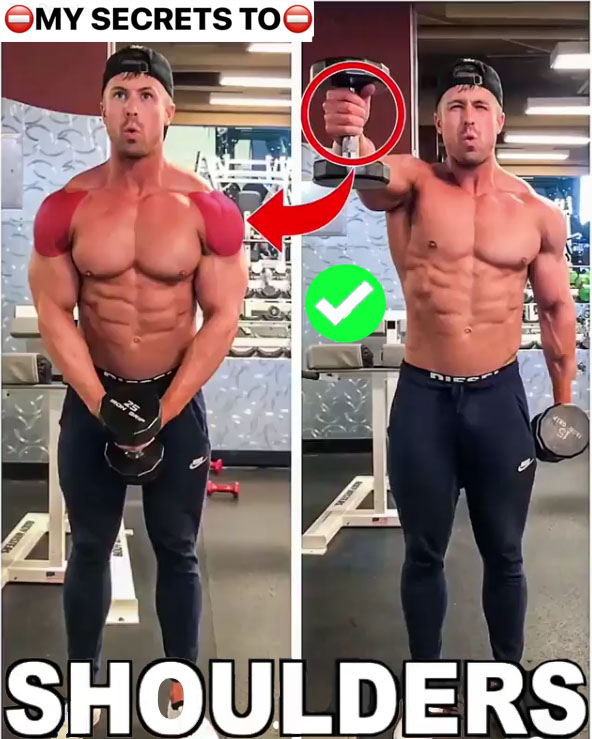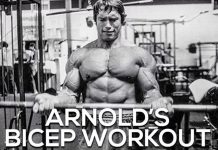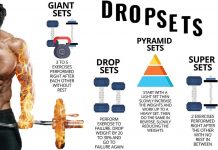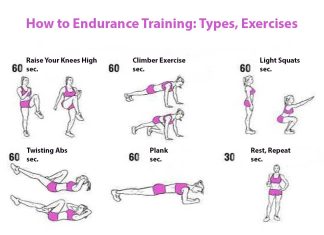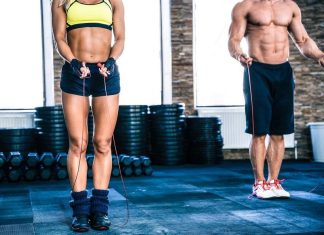🔥5 Best Shoulder Exercises
[wp_ad_camp_1]
Nothing stands out on a physique like a great pair of full, well-rounded shoulders. Even if your shoulders aren’t as wide as you’d like them to be, you can create the illusion of a V-taper look by developing a pair of supersized cannonball deltoids and losing a few inches off the waist.
Shoulder training can often be neglected in favor of training chest and arms, and you’d be surprised how many guys feel like their shoulders already get enough work as secondary muscles on chest/arm day and therefore don’t require any specialized work. This, of course, is far from reality in most cases. Sure, there are a few genetic beasts in every gym who seem to grow no matter what they do or don’t do, but for the rest of us, proper high-intensity shoulder training is required to ensure great development in this area.
Read the rest of this article to learn how to target your shoulders better and reap quality strength and mass gains on every gym visit!
[wp_ad_camp_5]
🔥 Free Weights First
First of all, make sure to replace most of your machine-based overhead presses with free-weight overhead presses performed with dumbbells or a barbell. This will allow you to engage more muscles and strengthen your stabilizing muscles which although small or hidden, are extremely important for an injury-free and highly effective performance and ultimately for building a strong and well-balanced body.
Free weights enable your body to move in all three planes of movement, which is how your body normally moves in daily life, and this will help you increase your range of motion, target your muscles from all angles possible and build real, functional strength. Also, since you have to work to stabilize the weight while lifting it, instead of having a machine do that for you, your overall stability will dramatically increase. And stability is perhaps nowhere as important as it is for the shoulder area, which is notorious for its vulnerability.
On the other hand, machines allow you to focus more on the effort and less on the mechanics of the movement, and this can be useful for the end of your workout, when accumulated fatigue makes balancing weights over your head very difficult.
So it would be best to do the harder, free-weight variant of the exercise early in the workout, before fatigue sets in, and save the machine version for later, when you can use it to cause maximal hypertrophy and drain your muscles of any remaining strength by focusing on solely pushing the weight. Machines will also allow you to lift heavier weights and isolate specific muscle groups better, so it’s good to have a fair share of machine-based movements in your routine as well, as long as you make sure that free-weight exercises are at the center of your workouts.
[wp_ad_camp_4]
🔥 The Importance of TUT
Besides calves, shoulders can be one of the most reluctant body parts to grow. The reason for this is that these muscles are primarily geared for endurance rather than power and are used to working hard throughout the entire day to power all arm movements. This is why the most important thing to remember when training your shoulders (as well as calves!) is that they need a lot intensity in order to be forced into new growth.
[wp_ad_camp_3]
One way to do that is by using heavy weights, but that’s not always recommendable because shoulder joints are very vulnerable to injury and your first priority should be keeping them healthy while improving the strength of the muscle surrounding them. The other way to do it by enabling optimal time under tension (TUT). Make sure to always perform the lowering part of your shoulder exercises in a slow and controlled manner so that you can maintain a good level of tension on the targeted muscle. Also, try to make rest periods as short as possible and never go above 2 minutes. Keeping the intensity high will make your muscles work harder and prompt greater growth.
To completely exhaust the muscles and enable maximum hypertrophy, start your shoulder workouts with heavy presses and end them with lighter-weight isolation work.



